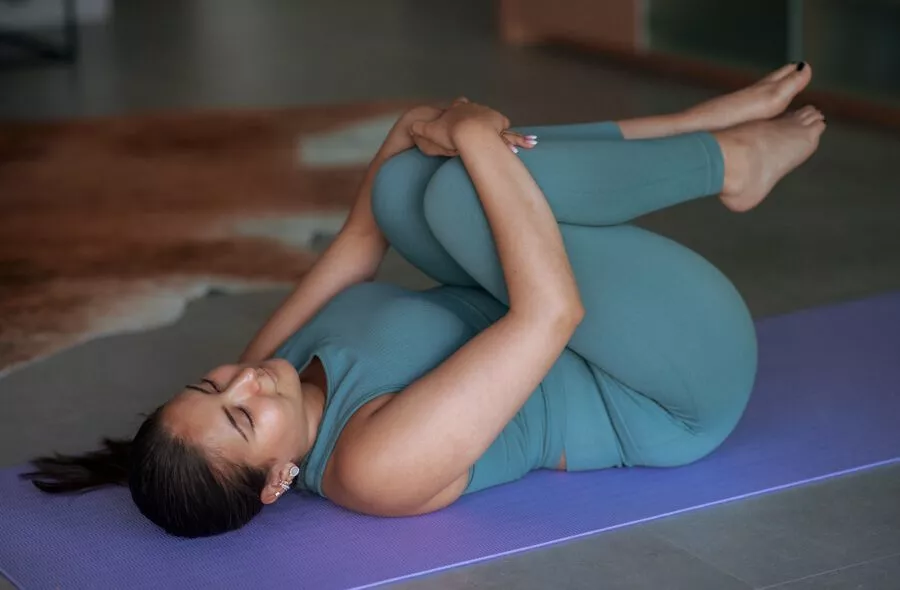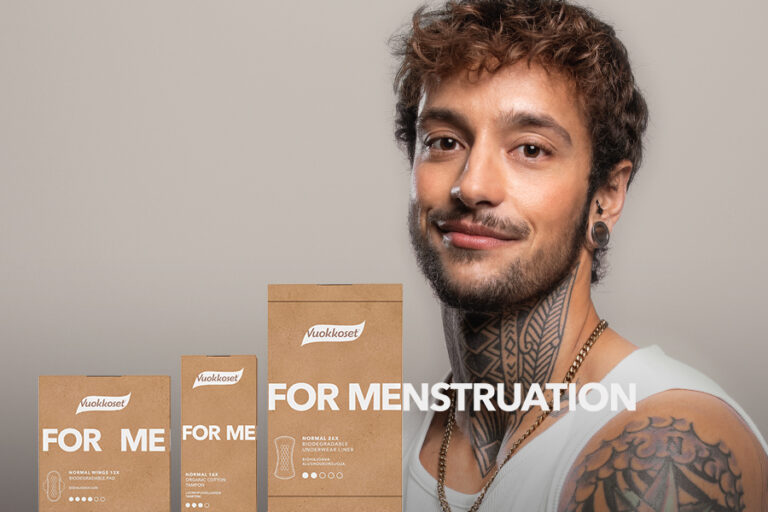We often talk of periods as a purely physical issue that manifests as a bloody flow approximately every 28 days. In reality, periods and the entire menstrual cycle also affect your mood and wellbeing. By keeping a mood diary, you can easily figure out how you feel during the first few days of a period, how you feel when you’re ovulating and how you feel before your period. At the same time, you can find ways to alleviate mood swings through exercise, meditation, or intimacy.
The connection between body and mind
The first day of your menstrual cycle is the day on which your menstrual flow properly begins. If your flow begins after 6pm, the next day will be counted as the first day of your cycle. A period usually lasts from 3-5 days. During a period, hormone levels are at their lowest, and this can cause physical pain as well as a low mood, tearfulness, and even minor setbacks can feel like the end of the world.
Period pain can be managed with painkillers and light exercise, if you feel up to it. The most important thing is to accept the situation and be kind to yourself. Low mood usually lasts a few days, and it is completely acceptable to curl up on the sofa to watch your favourite TV show with a bar of chocolate, if that is what makes you feel best in that moment.
You can also try mindfulness exercises or meditation, which research has shown can increase your feeling of wellbeing. There are some yoga positions that you can practice to help with period pain. Yoga and other forms of exercise release endorphins, which are the body’s natural mood boosters. Sleep is also an important part of our wellbeing. Try a slower daily routine and add an extra hour of sleep to your period routines.
High-energy ovulation
After a period, at around the ovulation phase, estrogen levels are at their highest and you may feel like you have lots of energy. The effect of these hormones can also manifest as a high sex drive; the days before and during ovulation are the optimal time to try to get pregnant. Ovulation can also be felt as a pain that quickly passes. The pain comes from the egg detaching from one of the ovaries.
Many people feel confident and sexy during ovulation. Enjoy this feeling to the full, and if possible, schedule your important meetings and events for the middle of your cycle.
Around one week after ovulation, you may experience PMS symptoms.
Know your body and mind – three tips to take away
- Keep a mood diary. Record the day of your cycle, and how you feel physically and emotionally. After three months you will be able to identify various symptoms and see how your cycle affects how you feel.
- Be kind to yourself. Approach your cycle and the changes it brings to your mind and body with gentle acceptance.
- Sleep + diet + exercise. These three play a key role in hormone levels, and keeping them balanced supports overall wellbeing.
Sources: Duodecim Terveyskirjasto, Iltalehti.fi and Naistalo.fi
How to save nature through day-to-day choices during your period, learn more.
How can I work out during different phases of my cycle? Read more.





